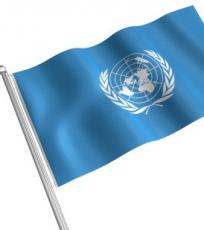Report & papers from international experts meeting on primary prevention released
Tue 20 Nov 2012
International experts have highlighted the "unprecedented evidence and practice base" that has emerged on the primary prevention of violence ...
 International experts have highlighted the "unprecedented evidence and practice base" that has emerged on the primary prevention of violence against women and girls in recent years. They emphasise that it provides "concrete guidance on the application of proven and effective strategies" and makes the prevention of violence against women and girls a "tangible and measurable goal".
International experts have highlighted the "unprecedented evidence and practice base" that has emerged on the primary prevention of violence against women and girls in recent years. They emphasise that it provides "concrete guidance on the application of proven and effective strategies" and makes the prevention of violence against women and girls a "tangible and measurable goal".
"We now know that to effectively prevent violence against women and girls, efforts must go beyond simple awareness-raising projects and instead work to actively (and measurably) transform discriminatory and violence-supportive attitudes and behaviours, community norms, institutional practices and systems, laws and policies, and society as a whole."
These discussions were held at an expert group meeting on the prevention of violence against women and girls which was convened by UN Women in cooperation with ESCAP, UNDP, UNFPA, UNICEF and WHO on 17-20 September 2012. The meeting was designed to assist the Commission on the Status of Women (CSW) in its discussions on the elimination and prevention of all forms of violence against women and girls, its priority theme for its fifty-seventh session on 4 -15 March 2013.
A series of expert papers on different aspects of primary prevention of violence against women and girls can be accessed here. These include working with children in schools, social mobilisation campaigns, the role of faith based organisations, the media as a site to prevent violence against girls and women, creating social norms to prevent violence and working with men and boys to promote gender equality.
The report from the meeting also states:
"Experts noted that the impacts of the global financial crisis, the economic pressures on Governments to reduce funding to social services and programmes, and the ongoing resource constraints faced by conflict-affected and developing countries, all risk limiting or reducing the investment States will make in preventing and responding to violence against women and girls.
"However, they highlighted the enormous costs violence against women and girls entails to States and societies as a whole, in terms of reduced human capital, decreased productivity, exacerbated social inequalities, lowered overall educational outcomes, and broad strains on public services. Violence diminishes women’s and girls’ ability to gain an education, earn a living and participate in public life, and live a life free of fear. It has significant health impacts, including psychological consequences, physical injuries, sexual/reproductive health issues and death....
"Violence against women and girls therefore entails massive costs to the State, and has a dragging effect on all other social and economic development efforts, particularly in humanitarian and development contexts. It is only by lowering the incidence of violence against women and girls, preventing recurrence, and responding effectively to existing violence to minimise ongoing impacts, that the overall costs of such violence to any economy will be reduced.”


